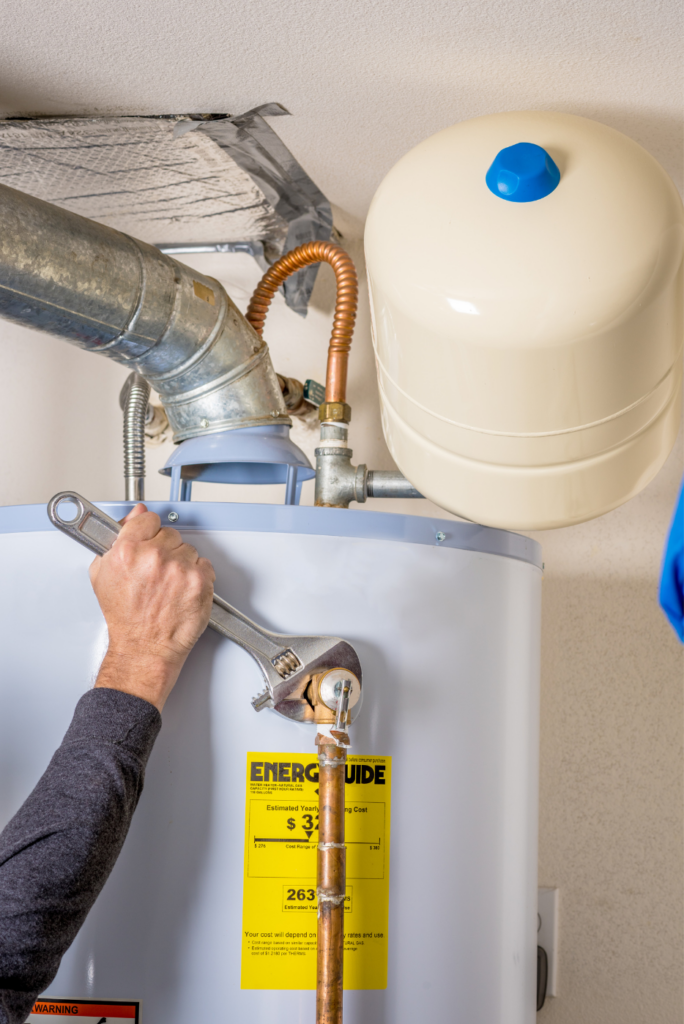Common Water Heater Problems
Common Water Heater Problems
Blog Article
Have you been interested in critical information around Water Heaters Problems?

Visualize starting your day without your regular hot shower. That already establishes a bad tone for the rest of your day.
Every residence needs a reputable hot water heater, but just a couple of know exactly how to manage one. One simple method to maintain your water heater in top form is to look for faults consistently and repair them as quickly as they appear.
Keep in mind to shut off your hot water heater prior to sniffing around for faults. These are the hot water heater mistakes you are more than likely to run into.
Water as well hot or as well cold
Every water heater has a thermostat that determines just how warm the water gets. If the water coming into your house is also hot despite establishing a hassle-free maximum temperature, your thermostat could be malfunctioning.
On the other hand, too cold water may be due to a fallen short thermostat, a damaged circuit, or improper gas circulation. For example, if you make use of a gas hot water heater with a broken pilot burner, you would obtain cold water, even if the thermostat is in best condition. For electrical heaters, a blown fuse might be the wrongdoer.
Inadequate warm water
Water heaters can be found in numerous dimensions, relying on your hot water demands. If you lack hot water before everybody has actually had a bathroom, your water heater is too tiny for your family size. You need to consider installing a larger water heater storage tank or going with a tankless hot water heater, which uses up much less area and also is a lot more durable.
Weird noises
There go to least five kinds of noises you can learn through a hot water heater, yet one of the most usual analysis is that it's time for the hot water heater to retire.
First off, you need to know with the regular seems a water heater makes. An electric heater might seem different from a gas-powered one.
Popping or banging audios typically imply there is a piece of sediment in your containers, as well as it's time to clean it out. On the other hand, whistling or hissing noises may merely be your valves allowing some pressure off.
Water leakages
Leakages can come from pipes, water links, valves, or in the worst-case circumstance, the tank itself. Gradually, water will rust the container, as well as locate its way out. If this occurs, you require to replace your hot water heater asap.
However, prior to your adjustment your entire tank, make sure that all pipelines remain in place and that each valve functions perfectly. If you still need assistance recognizing a leakage, call your plumber.
Rust-colored water
Rust-colored water means one of your water heater elements is corroded. It could be the anode rod, or the tank itself. Your plumber will have the ability to identify which it is.
Warm water
No matter just how high you set the thermostat, you won't obtain any warm water out of a heater well past its prime. A hot water heater's performance may minimize with time.
You will certainly also obtain warm water if your pipes have a cross connection. This suggests that when you turn on a faucet, hot water from the heater moves in alongside routine, cold water. A cross connection is easy to area. If your warm water taps still follow closing the water heater shutoffs, you have a cross connection.
Discoloured Water
Corrosion is a major source of unclean or discoloured water. Rust within the water storage tank or a falling short anode rod might create this discolouration. The anode pole shields the storage tank from rusting on the inside and must be inspected annual. Without a pole or a correctly operating anode pole, the warm water promptly corrodes inside the container. Call a specialist hot water heater service technician to figure out if changing the anode rod will fix the problem; if not, replace your water heater.
Conclusion
Ideally, your water heater can last one decade prior to you require an adjustment. Nevertheless, after the 10-year mark, you may experience any of these mistakes much more regularly. Now, you must include a new water heater to your spending plan.
How To Troubleshoot 3 Common Water Heater Problems in Twin Cities
The Water Heater Is Leaking
A leaky cold water inlet valve A loose pipe fitting A leaky temperature and pressure relief valve A corroded anode rod A cracked tank Turn Off Your Water Heater:
Shut off your gas water heater by turning the gas valve on the unit to the “OFF” position. Shut off your electric water by switching its power off at your electrical panel. Look for a two-pole breaker labeled “water heater” and turn it to the “OFF” position. Move the ball valve connected to the water heater to be perpendicular to the piping at a 90° angle. Look for the Leak:
Depending on whether the water is coming from the tank's top or bottom, you’ll want to look for the leak in different locations.
If the leak comes from the top of the tank, carefully look for water escaping from the cold water inlet valve or loose pipe fittings. Rusted hot and cold water valves can have loose connections with the tank, with water leaking out of them.
https://mspplumbingheatingair.com/blog/how-to-troubleshoot-3-common-water-heater-problems
As a keen person who reads about Common Problems with Your Home Water Heater, I think sharing that section was a good idea. So long as you appreciated our page if you please remember to share it. Thank you for your time. Don't hesitate to come visit our blog back soon.
Immediate inquiry? Reach. Report this page